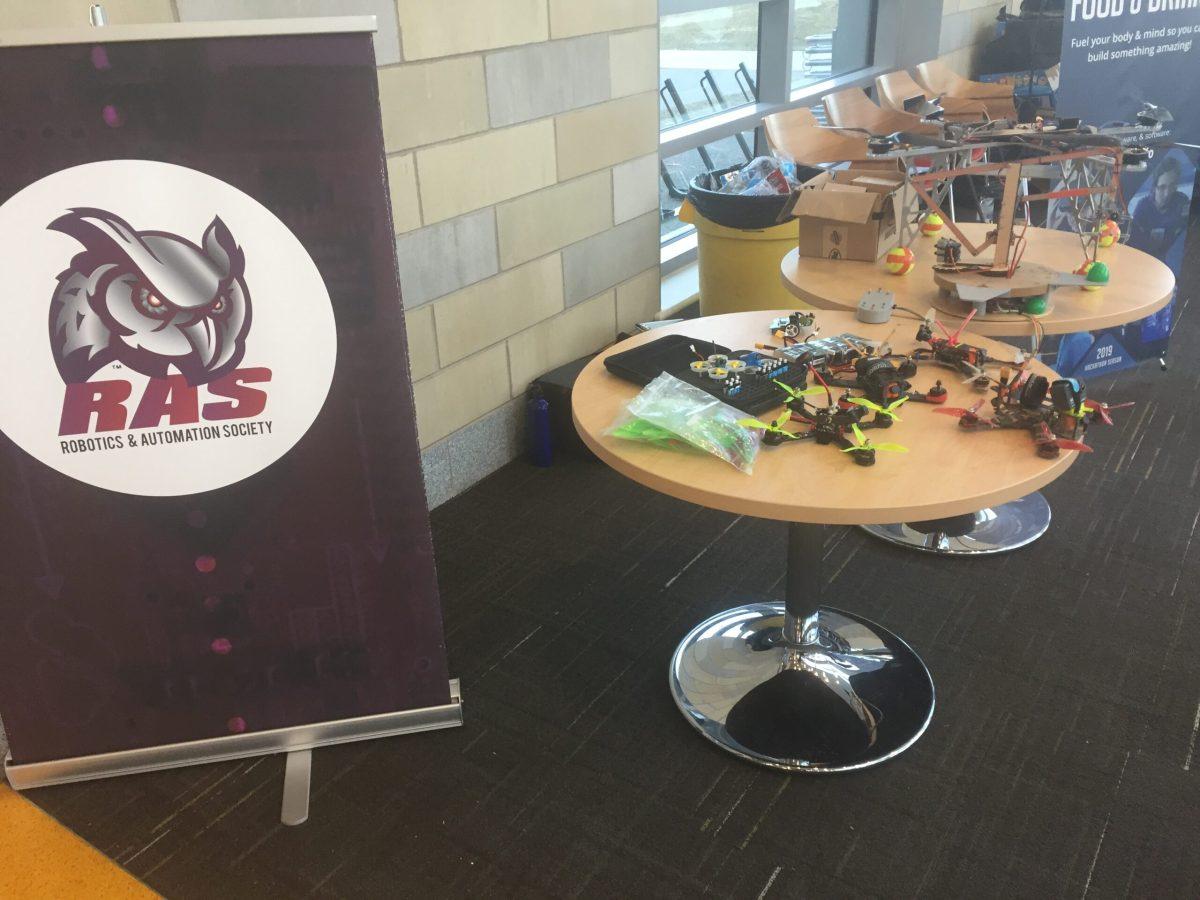The fourth annual Rowan ProfHacks Hackathon took place from March 9 to 10, hosted by Rowan University’s Institute of Electrical and Electronics Engineers club (IEEE). IEEE is one of the largest clubs on campus.
Colorful streamers, balloons and the sounds of upbeat pop music filled the atmosphere, giving the otherwise stiff engineering building an air of excitement.

ProfHacks sits among the ranks of established hackathons, including some hosted at nearby universities, as a Major League Hacking affiliate.
Hackathon is a competition which challenges its participants to integrate software and/or hardware in creative, inventive and technical ways in the spirit of the designated themes. Students generally work in teams to collaborate and create a demo or project through “hacking” or combining different programs and technologies together to make another product, in a typical 24-hour “marathon” style.
However, at least at Profhacks, not all students have to take part in the competition. With workshops in software (like how to make a website) and hardware (Arduino building) with industry professionals, fun activities like cup stacking and a planetarium show, free meals (including free Cookie Munchers), free items such as bags and water bottles and the ability to win prizes like Google homes, drones and $150 Amazon vouchers, there are options for all attendees.

This year’s themes included smart space technology and social good.
The event’s first place winners were senior computer science majors Jason Fazio and William Jacobs, and graduate computer science students Jatin Bhakta and Tyler Carberry. The four worked on a project called Facial Navigation, which is an online program that lets users operate the internet contact free by moving their face in different ways. The design is aimed specifically at people who are not able to fully use their hands or fingers, leaning towards the social good theme.
“When we came up with the project idea, I thought it was cool because I also thought of Stephen Hawking,” Bhakta said.
As computer science students, there was a lot of valuable experience in taking part in the event.
“It was insane how much we learned throughout the project just by trying different things,” Fazio said. “At one point, we had to redo part of our project because we realized, wow, this would be a 10 times better way to do it.”
ProfHacks gave students the ability to try new things and use their skills to better the community.
“When I got the API working, I was like ‘it works!’ and we stood up and we just started clapping randomly and the whole room started clapping with us,” Jacobs said. “It was the best moment of the night.”
For judge Christopher Frederickson, part of Rowan’s class of 2017 and co-founder of ProfHacks, the focus was seeing how well the integration worked between hardware, software and third party systems, especially because communication between these areas is often difficult to achieve. There also had to be a wow-factor, something different than he had seen before.
“It checked all of the boxes of what we were looking for,” Frederickson said of the Facial Navigation.
Judge Chris Green, a Rowan 2018 graduate and past ProfHacks lead organizer, also credits the consistency of the program.
“The whole time they were demoing it, it was doing exactly what they wanted it to do. It had a something of a 90% success rate,” Green said.
With over 200 participants, ranging from high school students to graduate students, it is easy to forget this isn’t a convention. Rather, it’s an event solely put together by college students.
The event’s lead organizers include electrical and computer engineering senior Ben Jukus, junior Kevin O’Hare and sophomore Fowad Sohail. They are aided by 20 committee volunteers to help with the logistics of the event, such as gaining sponsors, scheduling and getting resources.
“We’ve been at it since September,” Sohail said. “That means meeting a lot. Multiple times a week, the three of us would meet up.”
For Jukus, the hackathon was a lot of work, but it also allowed his creativity to flow freely.
“It was a lot of planning, a lot of calls, a lot of emails, a lot of texts,” Jukus said. “STEM is always thought of as a little less creative and a little less artsy. This gives them time to have a little creative freedom.”
For comments/questions about this story, email [email protected] or tweet @TheWhitOnline.

























































































































































!["Working with [Dr. Lynch] is always a learning experience for me. She is a treasure,” said Thomas. - Staff Writer / Kacie Scibilia](https://thewhitonline.com/wp-content/uploads/2025/04/choir-1-1200x694.jpg)









































